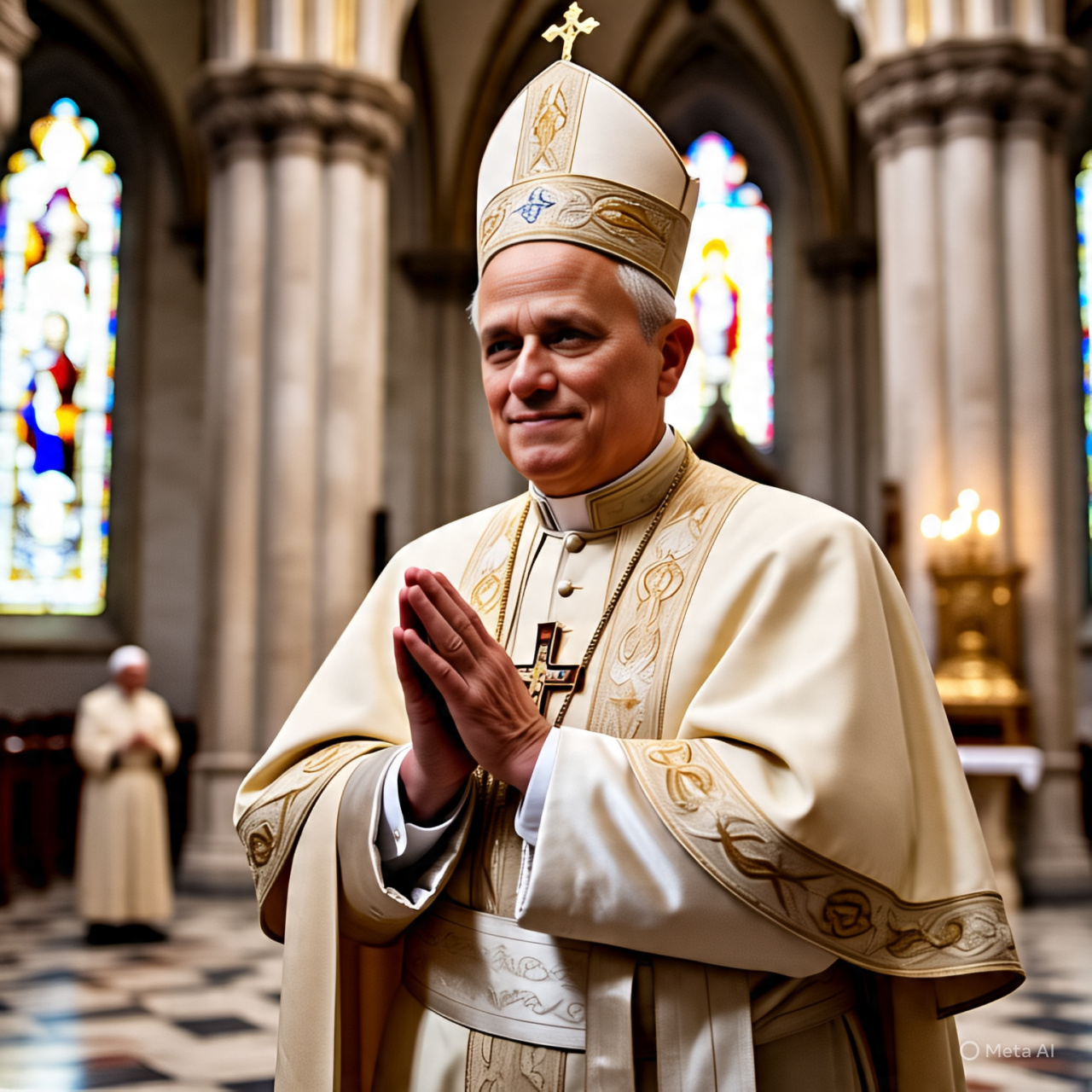
POPE LEO XIV: AI REVOLUTION
How intimidating it is already that we cannot even make a clear distinction between a work that is inspired and produced by human ingenuity or intelligence, and artificial intelligence.
In fact, shortly after the election of Pope Leo XIV, there was a viral video that trended on TikTok where the President of Burkina Faso made a public speech directed to the Pope and the Pope making a response, all ‘AI personified.’ How many were swayed because it was so true that our reason failed to be critical and rushed to digest this trend. This shows the extensive overhaul of human intelligence by artificial intelligence.
Artificial intelligence produces quality and powerful information through the use of algorithms to aid its systemic performance. It serves information handy and faster than human intelligence can attempt to produce, in fact, in some cases, it comes in a splint seconds.
This development is a remarkable feat of modern minds and undoubtedly mind-blowing. However, AI posits a potential threat to the human ingenuity and intelligence in a manner that is rapidly driving at the degradation and devaluation of the human person. So sad! Therefore, in an age such as this, there is critical need for wisdom and guidance which the Church does not cease in extending her hands to provide.
Following his election as the 267th Pope in Roman Catholic history, Robert Cardinal Prevost (Pope Leo XIV) explained his papal name choice on the second day of his papacy in an address. He said “…sensing myself called to continue in this same path, I chose to take the name Leo XIV.
There are many reasons for this, but mainly because Pope Leo XIII in his historic Rerum Novarum addressed the social question in the context of the first great industrial revolution. In our own day, the Church offers to everyone the treasury of her social teaching in response to another industrial revolution and to developments in the field of artificial intelligence that pose new challenges for the defence of human dignity, justice and labour. He further bemoans the downside of AI and the threats its poses to the human person and the world at large.
Although the Pope described humanity as being at a crossroads due to the immense potential of the digital revolution driven by AI, he acknowledged its positive transformative effects across various sectors such as education, work, communication, healthcare etc.
He stressed that while AI can stimulate human reasoning and perform tasks with efficiency, it cannot replicate moral discernment or the ability to form genuine relationships. In his words, “our personal life has greater value than any algorithm, and social relationships require spaces for development that far transcend the limited patterns than any soulless machine can prepackage.
Research has shown that in some years to come, there will be a high level of depreciation in human-work relationship, man as a being, present and making intelligent decisions, will be a work of the past. Machines will think for us, work for us, tell us what to do, and make everything available for us. Hence, we become dummies and mere objects in our own world, a world that has been entrusted to our intelligence and care.
Thus, Pope Leo XIV’s address echoes the fact that the human person is created Imago Dei and hence social relationship is a natural process formed between same human species not AI robotics. This is why in the rapid evolution of AI, he reiterates the necessity for proper formation of conscience towards our use of AI machines, developing a mindset that places the human person at the centre in such a way that moral and ethical values are not threatened.
That is, human dignity is not negotiable- it must be respected and safeguarded at all cost because AI is just a tool to be explored and harnessed harmoniously not to be used as a replacement of the human person.
On our part, we must ensure that AI development build bridges of dialogue and promote fraternity just as the Pope encouraged. We must tread with caution on the usage of AI because it is a tool and its ethical force largely derives from the intentions of those who wield it. That is to say, we should learn to filter the information AI gives us; we should learn to apply it in a way that promotes the dignity of the human person such as creating contents founded on truth, creating pictorial stories to help one understand the Bible better or the doctrines of the Church. By this, we become herald of truth and morality even in an age steeped in depravity.
I implore us all to heed to the voice of the Church our Mother who counsels us in every season. She knows that if these media (AI systems and robotics) are properly used, they are beneficial to mankind, propagating the kingdom of God. But she also knows that when used in ways contrary to the Creator’s design, breeds damaging results. AI can be viewed as either a ‘technique of degradation’ or a ‘technique of appreciation. The former is when we treat AI technology as a cold, impersonal tool that reduces human relationships and dignity to mere “user-as-commodity” which the Pope warns against.
The latter however, is when we engage with AI technology as an extension of human creativity and a way we build genuine community and relationships. In line with Pope Leo XIV’s vision, let us always ensure AI systems are applied as a ‘technique of appreciation.’



Leave a Comment